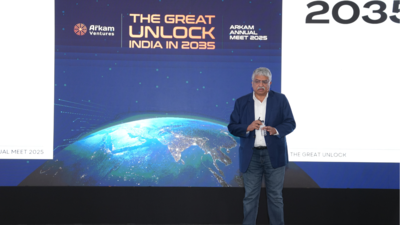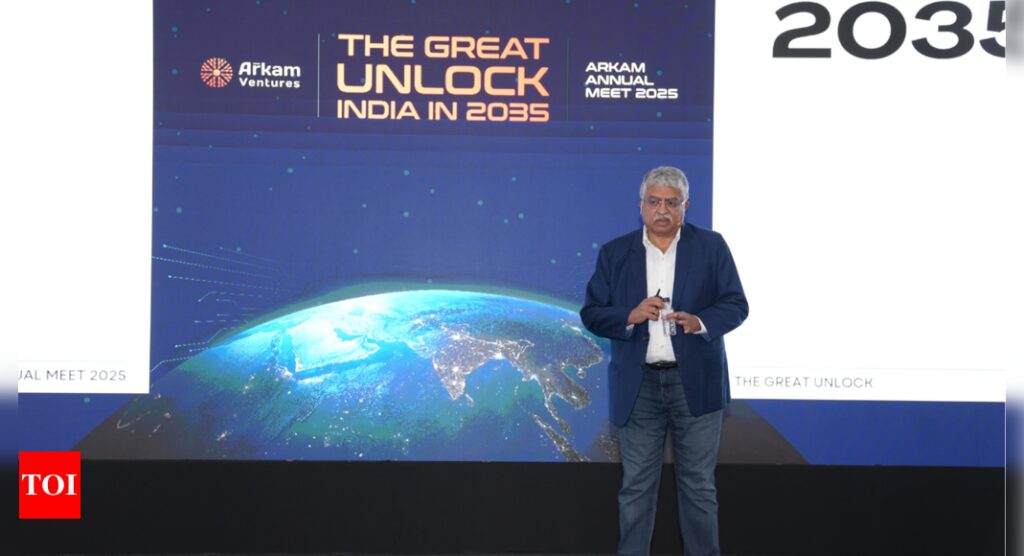
BENGALURU: The future of energy will be a decentralised structure, with millions of small producers buying and selling power in a way that mirrors Unified Payments Interface (UPI), Infosys chairman Nandan Nilekani said at an event hosted by Arkam Ventures in Bengaluru on Wednesday.
“The next UPI is energy,” said Nilekani, who played a pivotal role in developing India’s digital public infrastructure (DPI), which delivered successful digital initiatives like UPI and Aadhaar. He emphasised that the coming era would see households not just consuming electricity but also producing and trading it. “Every home will be an energy producer because they have rooftop solar, an energy storer because they have an EV battery, and a producer, seller, and buyer of energy,” he said. “These trades may not be with the grid; they may be with your neighbour.”
The concept aligns with efforts like the Unified Energy Interface (UEI), an open network launched last year by 20 energy companies to streamline EV charging. Nilekani drew parallels to historical energy consumption patterns, noting that people long purchased energy in small, incremental amounts – whether as firewood, coal, or LPG cylinders. “But electricity always was something we received from the grid, or generated privately using oil-powered generators,” he said.
With rooftop solar and EV batteries becoming widespread, he believes energy transactions will shift to a seamless, peer-to-peer marketplace, much like digital payments. “You’re going to create millions of energy entrepreneurs who will invest in producing small amounts of energy and selling it to each other,” he said. This, he added, could fundamentally reshape the energy landscape, creating a more distributed and resilient system.
However, realising this vision will require regulatory reforms. “We need to dramatically simplify our laws,” Nilekani said, pointing to outdated regulations and compliance burdens that hinder energy innovation. He cited India’s new Income Tax Act as an example of how laws can be rewritten for clarity and efficiency.
Additionally, he stressed the need for a broader shift towards formalisation, including portable credentials and benefits for workers, which would help entrepreneurs operate more freely. “If we reduce the friction for small businesses, millions of new opportunities will emerge,” he said.
This shift, Nilekani argued, could unlock a massive transformation in India’s energy sector. “The whole energy sector is going to be a huge thing. “This is a huge unlock,” he said.














